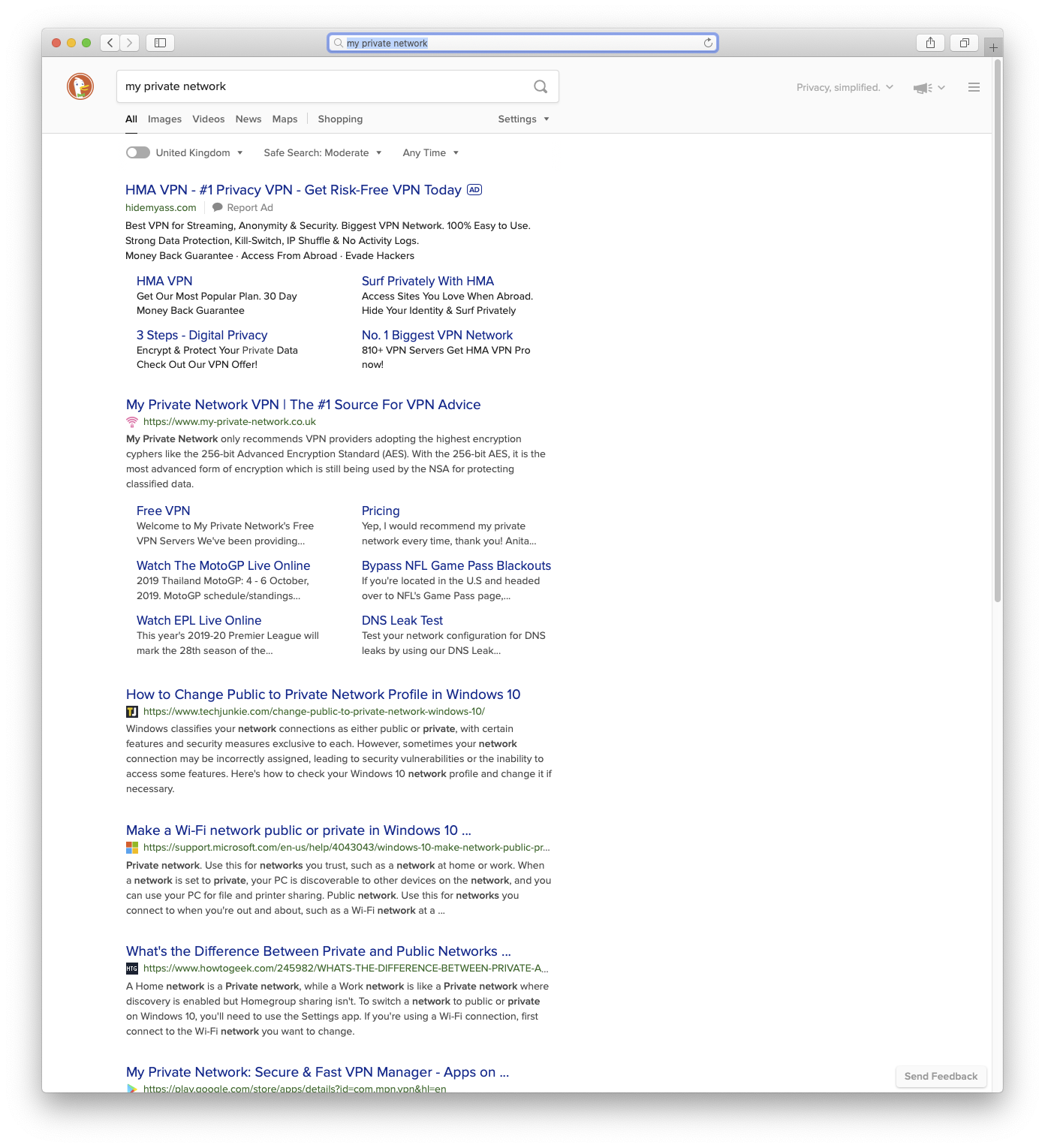Online Privacy – Search

Search Privacy – the second part in a series of articles, that I hope will increase your awareness of online privacy issues and some of the steps you can take to address them.
Online privacy, it matters!
Why, because knowledge is power and when you expose all of your digital habits to a 3rd party, you give them power of you and more importantly, over society.
Search Privacy
Search, it’s become ubiquitous, as the internet has spread through our lives, it has bought with it the ability to search for whatever we desire, be it information, entertainment, products or services, literally without lifting a finger. Siri, Alexa, Google et al, all make it child’s play to find what you’re looking for………but, and you knew it was coming…. as always, there is a price to pay.
Ever noticed how you search for something and then over the next few days, adverts for similar things start appearing on your devices? It’s no co-incidence, in fact it is the result of massive amounts of effort and ingenuity. Advertising pays for a big chunk of what we consume on the internet, it’s digital gold. Getting it right has made fortunes for corporations and individuals alike, so there is a huge effort to continuously improve and refine the processes by which we are shown adverts.
It’s all about the money
When a site displays an advert (like the ones you can probably see on this page), the site owner gets a tiny amount of revenue. If the viewer actually clicks on the advert and interacts with it, that revenue increases substantially. In theory it is in everyone’s interest to show people adverts that they will be interested in, the viewer benefits by not seeing adverts that are not of interest to them and the site owner benefits by increased or potentially increased revenue and that cascades down through the advertising companies and ultimately the provider of the goods or services being sold.
However, to my mind, there are at least two fundamental issues with this:
- targeted advertising like this requires that you know something about the viewer and on the internet that usually means tracking their searches and the sites that they visit.
- by only showing people targeted content, you put them in a bubble and only show them adverts that you think are relevant to them. By its very nature this makes some massive judgement calls on ‘who’ someone is. This includes elements of profiling such as the age, wealth, race and anything else that can be used to categorise that person. This is a much bigger problem on social networks, but applies to advertising as well.
How do I improve my search privacy?
Simple, change your search engine. Google has become synonymous with internet search and despite their stated motto “Don’t be evil”, have, in my opinion, trended towards the dark side. Google’s core value is in the data that they collect on their users. Whilst it certainly isn’t evil, they monetise the information that we all provide them when we use their search engine, or their email, or they mobiles phones (yes Android is part of Google). Likewise, Bing (from Microsoft), Yahoo, Baidu, AOL and all the others. They provide an incredible service for free, but ultimately you pay for it by sharing your data with them, which they then monetise by profiling and targeting you.
Thankfully, there is an alternative, and I can’t help myself, I simply have to draw the analogy with Star Wars and the Good Rebels against the Evil Empire. I know it’s not black and white and none of the aforementioned corporations are actually bad, they’re just doing what they do. Providing a service and making money. However, I do have a problem with them not making it crystal clear how you ultimately pay for their service.
So who is representing the rebels in the internet search arena, it’s the perhaps oddly named DuckDuckGo.
Who?
Yeah, that’s the reaction I usually get, just get past it, DuckDuckGo, is a privacy centric, internet search engine (they also provide a mobile browser and some other tools). I have been using it almost exclusively for the past five years on every device I have and I have to say, I love it. I love what the company represents, I love their ethos, but most of all, it just works. You can search the internet as effectively as with any other search engine and they categorically do not track you or use your search history. I urge you to view their privacy page and give it a read, they clearly state their commitment to privacy and there is also a lot of good privacy related information in there as well.
So how do you make the switch?
It’s easy, DuckDuckGo has search plugins for all the major browsers and the process is similar, in this example I’ll show you how to set it up in Safari on a Mac.
On your mac launch Safari and open the Safari menu in the top left hand corner.

Select Preferences and click on the Search option

On the Search preferences, if you have the default settings you will see that Google is selected. Hmmm, ever wonder why? Google pays literally billions of dollars, every year, to be the default search engine and Apple gladly accept the hand out. If you needed any convincing that your search data was valuable, that should provide it.
Thankfully, it’s an easy fix, click on the Search engine drop down.

and select DuckDuckGo.

You can now close the preferences window.

If you now try to search something in your browser bar, you can see that it says ‘Search DuckDuckGo’, indicating that all your searches will now use DuckDuckGo.

So what happens when you search? Well, it’s similar to using any search engine, the top one or two items on the list are adverts and have the ‘Ad’ icon next to them. The rest are your search results.
I feel I should clearly state that DuckDuckGo is a commercial company, just like the others, they make their money by displaying adverts in your search result. However, unlike the others, they respect your privacy and only show adverts relating to your search words. You aren’t seeing target ads specific to you and you aren’t being tracked.
Congrats, if you’ve switched to DuckDuckGo, you’ve taken a small but significant step to improving your search privacy.
OK but what about Siri / Alexa / Google Assistance / Cortana?
Whilst there are settings for each of the voice searches, ultimately, if you are using a voice assistance, your searches will be tracked and profiled. Some of the companies are making more progress in addressing this than others, but at present none can be said to truly respect your privacy and for that reason, I personally don’t use one. Am I just being pig-headed, I don’t think so, I do find it very impressive when my son says to his phone, that is just lying on the table, Hey Siri… insert some random fact that a millennial just has to check immediately here…. it is cool tech, but I guess I’m just a private person.
Other posts in this series
Pt 1 – Online Privacy – DNS Issues and some simple fixes





